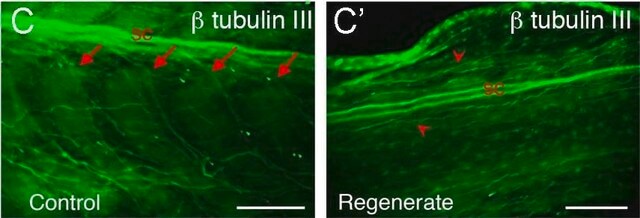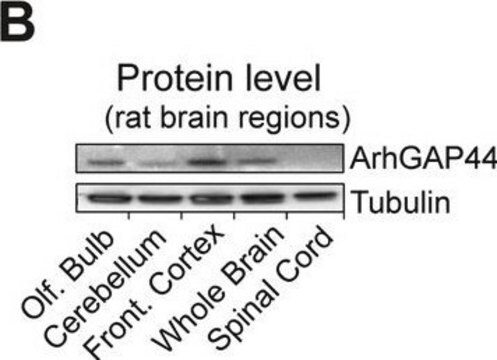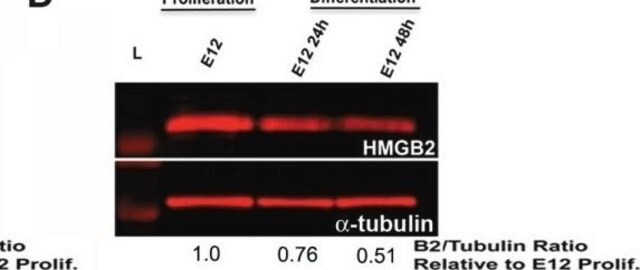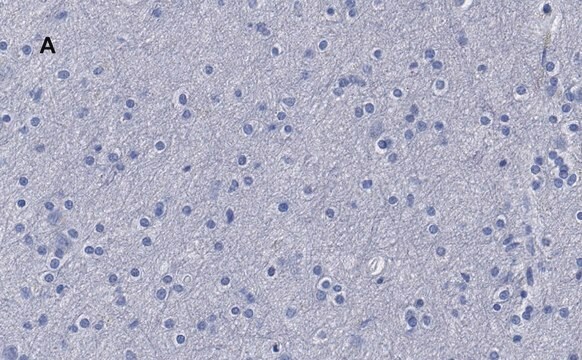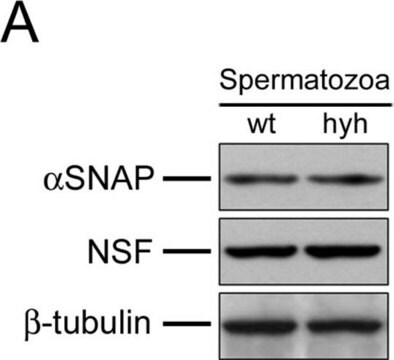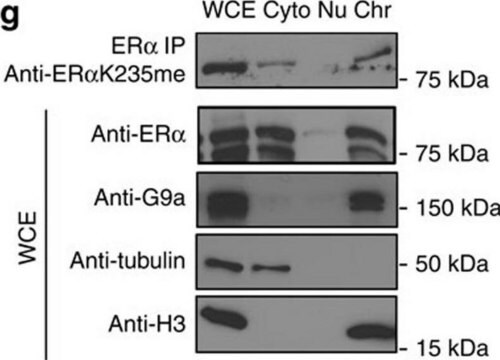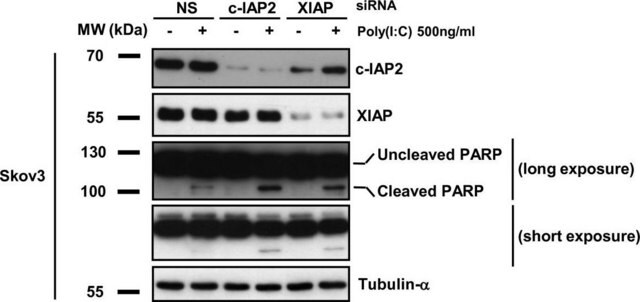T8535
Monoclonal Anti-β-Tubulin I+II antibody produced in mouse
clone JDR.3B8, ascites fluid
Synonym(s):
Anti-CDCBM5, Anti-TUBB, Anti-TUBB2
About This Item
ELISA (i)
IF
WB
indirect immunofluorescence: suitable
microarray: suitable
western blot: 1:1,000 using a chicken fibroblast extract or a chicken brain microtubule proteins preparation
Recommended Products
biological source
mouse
Quality Level
conjugate
unconjugated
antibody form
ascites fluid
antibody product type
primary antibodies
clone
JDR.3B8, monoclonal
contains
15 mM sodium azide
species reactivity
bovine, pig, chicken, human, rat, mouse
packaging
antibody small pack of 25 μL
technique(s)
indirect ELISA: suitable
indirect immunofluorescence: suitable
microarray: suitable
western blot: 1:1,000 using a chicken fibroblast extract or a chicken brain microtubule proteins preparation
isotype
IgG2b
shipped in
dry ice
storage temp.
−20°C
target post-translational modification
unmodified
Gene Information
human ... TUBB1(81027) , TUBB2A(7280) , TUBB2C(10383)
mouse ... Tubb1(545486) , Tubb2a(22151) , Tubb2c(227613)
rat ... Tubb2b(291081) , Tubb2c(296554)
General description
Specificity
Immunogen
Application
- immunoblot
- immunofluorescence technique
- immunohistochemistry.
- enzyme linked immunosorbent assay (ELISA)
- immunohistochemistry
- western blotting
- immunoblotting
- dot blot
- immunocytochemistry
Biochem/physiol Actions
Disclaimer
Not finding the right product?
Try our Product Selector Tool.
Storage Class Code
12 - Non Combustible Liquids
WGK
WGK 3
Flash Point(F)
Not applicable
Flash Point(C)
Not applicable
Choose from one of the most recent versions:
Already Own This Product?
Find documentation for the products that you have recently purchased in the Document Library.
Customers Also Viewed
Articles
Microtubules of the eukaryotic cytoskeleton are composed of a heterodimer of α- and β-tubulin. In addition to α-and β-tubulin, several other tubulins have been identified, bringing the number of distinct tubulin classes to seven.
Our team of scientists has experience in all areas of research including Life Science, Material Science, Chemical Synthesis, Chromatography, Analytical and many others.
Contact Technical Service